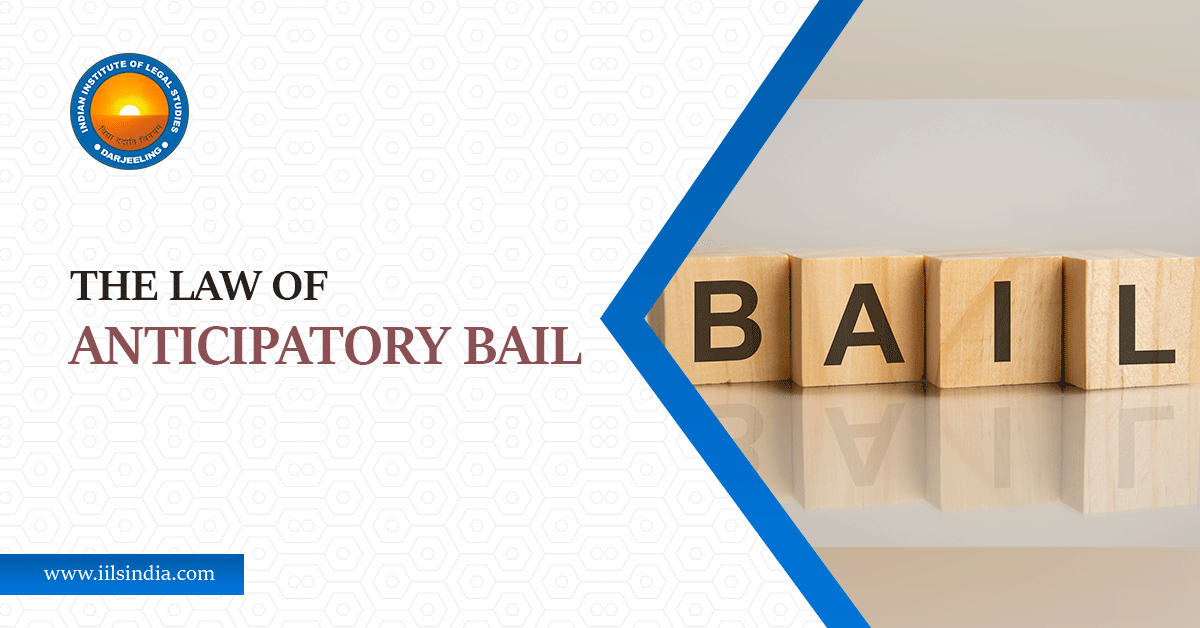In Indian criminal justice system, when a person is arrested, he is brought before the court of law. Then depending upon the categorization of offences, he is released on bail. In bailable offences, bail is granted as of right whereas in non-bailable offences, bail is granted as of discretion. The discretion is exercised on sound judicial principles. Then the question arises what is the need of anticipatory bail. Suppose, a person is implicated in a false and fabricated case. He is arrested and produced before the court of law. Thereafter, the court of law grants him bail. Meanwhile his liberty is restrained which is an essential attribute of Article 21 of the Constitution of India. In this backdrop, anticipatory bail has been incorporated under Section 438 in the Code of Criminal Procedure,1973. It is a pre-arrest bail which is granted in anticipation or apprehension of arrest.
As taught in law study in West Bengal, any person desirous of anticipatory bail can either approach Court of Sessions or High Court. Both the courts of law have concurrent jurisdiction. The main pre-requisite for anticipatory bail is the apprehension of arrest in non-bailable cases. It is irrelevant whether the offence is cognizable or non-cognizable. It is also immaterial whether the offence is punishable under the Indian Penal Code,1860 or any other statue. Registration of First Information Report is not a condition precedent to invoke Section 438 of the Code of Criminal Procedure,1973. But the apprehension must be based on reasonable grounds and not mere flimsy or vague grounds.
The grant of anticipatory bail is the sole discretion of the court of law. The court of law exercises this discretion on sound judicial principles like seriousness of the offence i.e., whether the offence is of heinous nature or the quantum of punishment is more. The court also takes into consideration his previous antecedents i.e., whether he is a habitual offender or not and his possibility of avoidance of justice dispensation system. The court also takes into consideration whether the allegation has been made with the ultimate objective of harassing the applicant by having him arrested in false and fabricated cases. Nowadays, this is quite common when the politicians or the bureaucrats or the police officials misuse the law for achieving their vested interests.
After law college admission in West Bengal, the students become aware of the procedure for the grant of anticipatory bail. The High Court or Court of Session can straightway reject the application or issue an interim order for grant of anticipatory bail. When the court grants interim protection, it shall issue a notice of at least seven days to Public Prosecutor as well as Superintendent of Police, so that they can prepare their case. It is in accordance with the principles of natural justice i.e., fair hearing. The Public Prosecutor can make an application regarding personal presence of the applicant at the time of final hearing. The court can allow such application, if it is satisfied with it. Depending upon the peculiarities of the case, the court attaches certain conditions with the anticipatory bail. This may include that the person shall always cooperate with the investigating officer and he should not tamper with the witnesses. The person should not leave India without the prior permission of the Court of law. The Court can also attach any other condition which it may deem fit and proper. The anticipatory bail is unlimited in point of time. It does not end merely with the issuance of summons or framing of charges. But, in exceptional circumstances, it can be granted for limited point of time. The Criminal Law (Amendment)Act, 2018 had incorporated certain changes in Section 438 of the Code of Criminal Procedure,1973. If a person is accused of committing sexual offences as enshrined in Sections 376(3), 376-AB,376-DA,376-DB of the Indian Penal Code,1860 then that person cannot avail the benefit of anticipatory bail. Anticipatory bail is a discretion. It should be granted by keeping a balance between individual liberty and societal interest. It should not be used to interrupt the investigation process.

